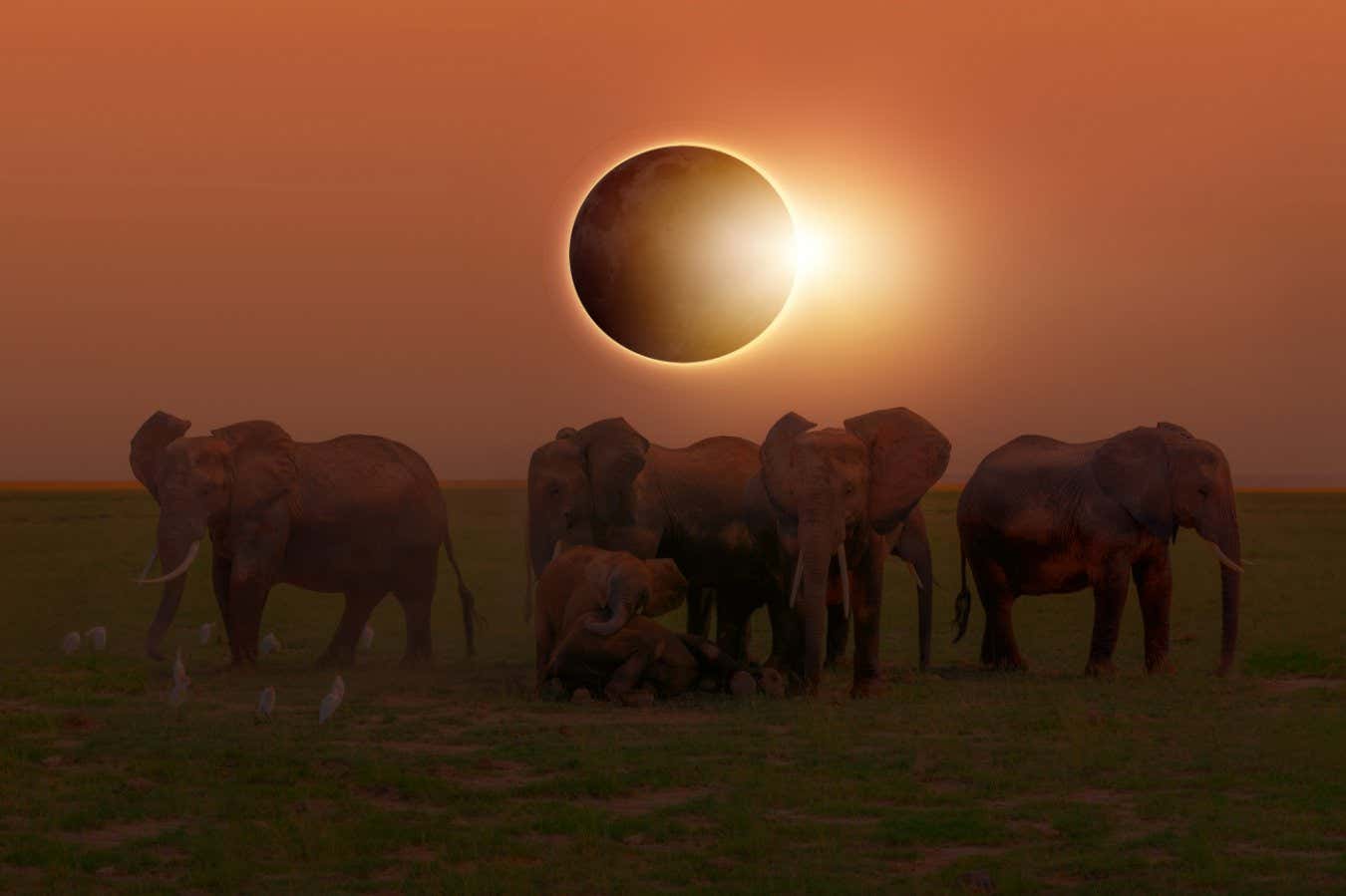When the moon hides the sun in a total solar eclipse, some animals seem to think that it is briefly nighttime, while others pace anxiously or even gaze up at the sky
By Leah Crane
12 March 2024
We are still trying to understand how animals respond to a solar eclipse
Ş. Uğur OKÇu/1001slide/iStockphoto/Getty Images
A total solar eclipse is impossible not to notice – the disc of the sun is completely covered by the moon, its shadow rushes across the surface of the earth, the temperature drops precipitously. Even animals seem to notice, and researchers around the world have studied how they react.
Researchers have observed all sorts of animals during solar eclipses, from wild hippopotamuses to pet dogs. Some of the most thorough studies, though, have been performed in zoos around the world.
Adam Hartstone-Rose at North Carolina State University and his colleagues performed one of the biggest such studies during the eclipse that crossed the US in 2017. “To be entirely honest, I didn’t think we were going to see anything interesting. Animals see clouds go overhead all of the time, occasionally it’s overcast – I didn’t think animals were going to care at all about this,” says Hartstone-Rose. “Astonishingly, three-quarters of the species that we watched had some sort of reaction.”
Advertisement
Most of those animals seemed to think it was nighttime during totality, the period in which the sun was completely hidden behind the moon. This might not come as a surprise to those who have witnessed a solar eclipse anywhere outdoors, as it has been known for centuries that birds and insects tend to quiet down and seek their nests.
“The gorillas usually hang out on the yard all day and then they go inside at night, so during totality the whole group of gorillas sort of marched over to the door and were perplexed why no one was letting them in,” says Hartstone-Rose. Similarly, he observed birds going to their roosts to bed down. Once totality ended, the gorillas and birds went back to their normal daytime activities. Past studies have also seen spiders taking down their webs during totality and bats briefly emerging from their daytime resting spots.
